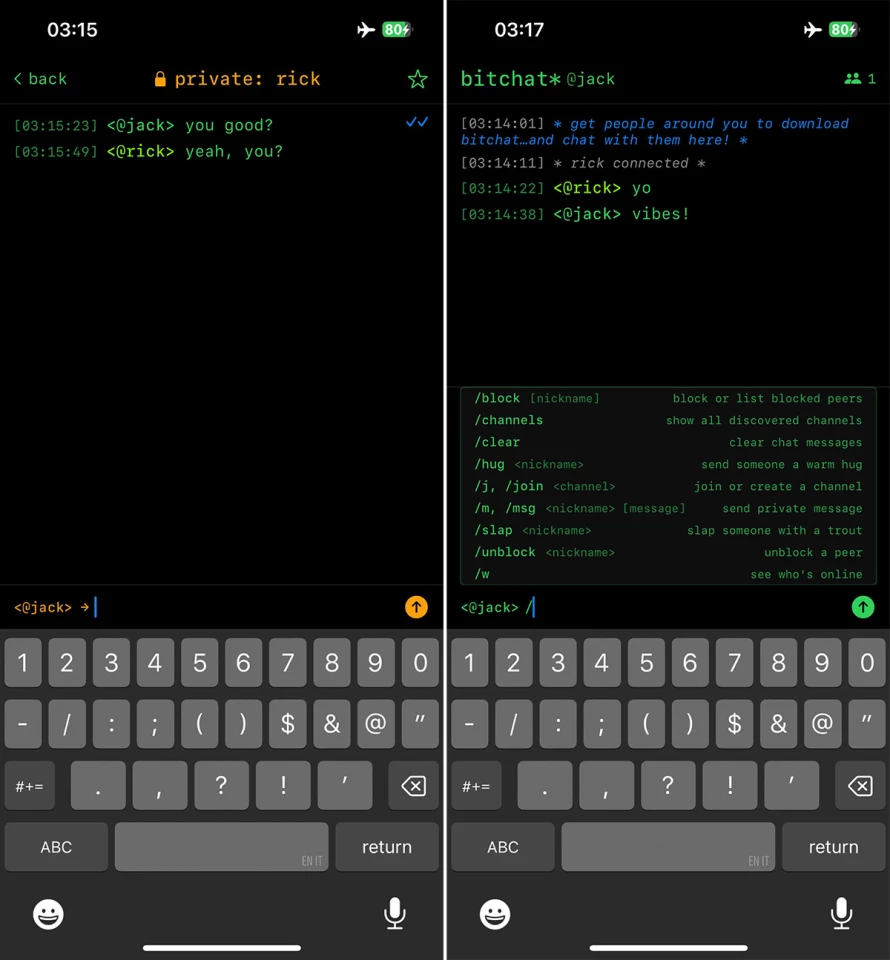Jack Dorsey, most famous for co-founding Twitter (now X) all the way back in 2006, is cooking up a different way to connect people. It's a peer-to-peer mesh-network-based messaging app that lets you chat with people over Bluetooth, no internet access required.
Dorsey said on X that he put together a basic version of the app, called Bitchat, over the past weekend as a way to learn about a bundle of technologies that power mesh-based services. The big deal here is that Bitchat is completely decentralized, with no servers to store messages.
The app will function similar to a 36-year-old messaging system called IRC (Internet Relay Chat), in the sense that you can either converse with others in topic-based chat rooms, or privately message people directly.
Because it works using Bluetooth, you'll be able to instantly message people who have the app installed within a distance of about 328 yards (300 m); if they're further away, Bitchat will bounce its way through connected devices via the wireless protocol until it reaches your contact.

Bitchat also promises end-to-end encryption for private messages, password protection to secure chat rooms, and ephemeral message storage only on device memory. You don't need to provide a phone number or email address to use it, and your activity in the app won't be tracked.
Dorsey made an early build of Bitchat available for people to try out on iOS via Apple's TestFlight program, but it's currently full up. Dorsey notes the platform-agnostic system can be baked into an Android app, but didn't say if or when he would take on that task.
This is fairly similar to other mesh-based messaging tools like the now-defunct FireChat and Bridgefy. They work on the same principles of offline, Bluetooth-based relays. Those gained popularity during the 2019 Hong Kong protests, when local authorities were said to be clamping down on internet access and exploring ways to spy on private messages.
Such apps can also come in handy during internet outages, and in situations where mobile services are dodgy, like at music festivals and public gatherings.
CNBC notes that a future version of Bitchat will support Wi-Fi Direct for greater speed and range.
While this has been done before, it's interesting that Dorsey is getting involved in an offline, privacy-first messaging solution. He has been a proponent of free expression and railed against censorship and control of online platforms by governments.
Dorsey previously founded X rival Bluesky in 2019, and recently supported Nostr, a decentralized social networking standard that supports social networks similar to X. He's also the chairman of Block Inc., which runs the financial services Platform Square.
At present, Bitchat appears to mostly be an experiment and a learning project for Dorsey, without any high stakes attached to its growth. That said, it'll be worth following the evolution of this app to see if its creator's name and voice help it gain traction at a time when tensions between several governments are high and online censorship in many countries is more prevalent than it's ever been.
Source: Jack Dorsey / GitHub





